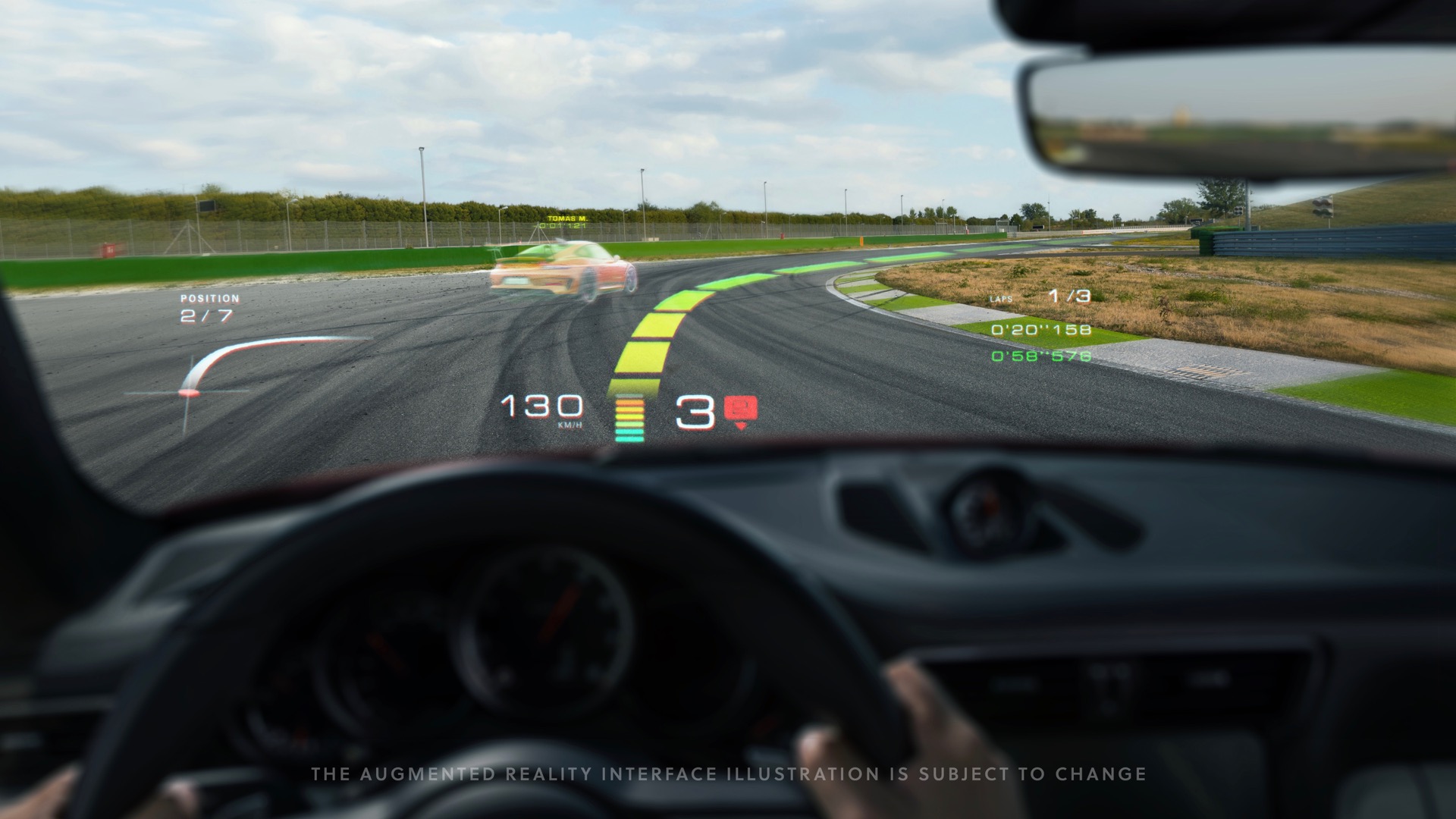

Swiss startup WayRay wants to bring augmented-reality tech to cars, and it’s getting help from some major automakers. WayRay just completed an $80 million Series C funding round, which was led by Porsche. Hyundai and Chinese tech giant Alibaba were among the investors as well.
Founded in 2012, WayRay is developing technology to project images onto car windshields. This could provide information about a vehicle’s surroundings, or video-game-like features such as ghost cars for drivers to chase on track days. WayRay claims its systems rely on a smaller projector than conventional head-up displays, allowing them to be used in a wider variety of car models, and project images at a more comfortable distance from human eyes.
WayRay previously partnered with Porsche as part of Startup Autobahn, a European program aimed at connecting automakers with relevant startups. Porsche has been on an investment spree lately, taking stakes in Israeli tech startup Anagog and Croatian boutique automaker Rimac.
The more compact nature of WayRay’s hardware could be advantageous for packaging in the tight interiors of sports cars, Lutz Meschcke, Porsche board member for finance and IT, said in a statement. This will enable Porsche to offer an array of “digital services,” allowing the company expand beyond merely making and selling cars, Meschke said.
In a statement by Hyundai chief innovation officer Youngcho Chi he said the Korean firm wants to develop an “ecosystem” based around augmented-reality tech, encompassing not only automotive applications but also “smart cities and smart buildings.”
WayRay plans to use its new funds to scale up from a startup into a proper company. It plans to establish a pilot production line for hardware in Germany, and to move beyond transportation to other areas like smart homes and even the construction industry.
Augmented reality for cars will likely exacerbate the problem of distracted driving, but automakers’ insistence on adding more complex tech features into new cars means it may be only a matter of time before augmented reality hits option lists.
Updated: Added statement from Porsche board member Lutz Meschcke